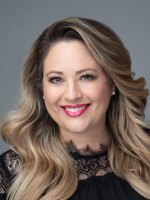The mass shooting in Buffalo, N.Y., where police say a white supremacist murdered 10 people and injured three others, has Black communities across the United States on edge. The majority of the victims were Black, and police say the gunman set out to kill Black people.
Bishop Cornelius Bowser of Shaphat Outreach, a nonprofit that focuses on violence intervention and prevention, said he and other local leaders would hold a vigil and protest at Balboa Park to stand up to hate and gun violence. He said we can’t turn a blind eye to what's happening across the country and in San Diego County. "We can’t say we’ve done away with racism when the children, 18-year-olds and right here in San Diego, the children that are 16, 17, 18 years old, are committing racial violence against Black people and brown people," Bowser said.
Just weeks ago a 16-year-old Black girl was stabbed in Lakeside. A white 16-year-old boy and his girlfriend are charged with a hate crime in that attack.
Many have been upset and critical about how that investigation was handled. Bowser says there should be zero tolerance and more vigilance by police in areas where white supremacist gangs are known to cause trouble.
"The same way they (law enforcement) put focus on crime and gangs in our community, they should focused on white supremacy and these groups — these hate groups — that are here in the city of San Diego and the county of San Diego, also," Bowser said.
Lt. Shawn Wray of the San Diego Sheriff's Department and commander of the Lakeside substation said they have been diligently investigating last month's stabbing, and said there was zero tolerance for hate crimes in his community.
"I’m very saddened it happened, and I have a lot of compassion for the family and/or anybody who is a victim of a crime, especially a hate crime. It’s a terrible incident, and I want people to know we really responded in force and continue to do everything we can," he said.
Wray said dialogue and trust must be continuously worked on, something that fell by the wayside during the pandemic. "The lesson learned is that we need to have relationships with the community set forth before incidents like this happen. I hate to blame the pandemic, but a lot of the in-person meetings and getting out there with the community — really connecting with all community members from our business owners to our residents to neighborhood watch meetings — they really either stopped happening or happened virtually ,and now that we’re back that’s one of my main focuses."
And these relationships matter because many hate crimes go unreported.
"A lot of times folks don't want to talk to the police because a lack of trust and so we have to build that trust within law enforcement," said Bowser.







